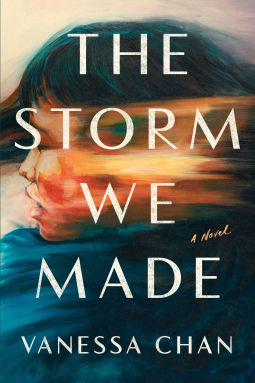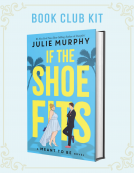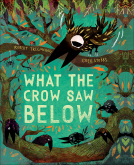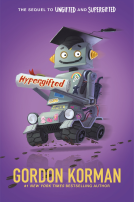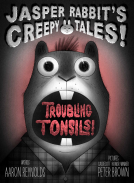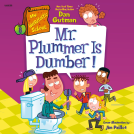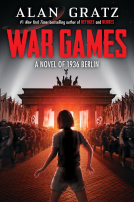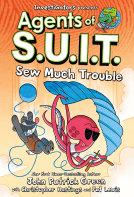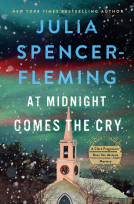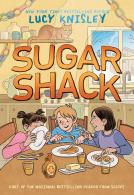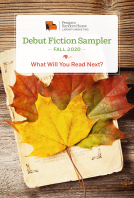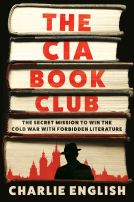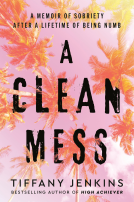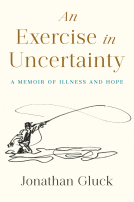The Storm We Made
A Good Morning America Book Club Pick
by Vanessa Chan
You must sign in to see if this title is available for request. Sign In or Register Now
Send NetGalley books directly to your Kindle or Kindle app
1
To read on a Kindle or Kindle app, please add kindle@netgalley.com as an approved email address to receive files in your Amazon account. Click here for step-by-step instructions.
2
Also find your Kindle email address within your Amazon account, and enter it here.
Pub Date Jan 02 2024 | Archive Date Not set
Simon Element | S&S/ Marysue Rucci Books
Description
NATIONAL BESTSELLER * A GOOD MORNING AMERICA BOOK CLUB PICK * LONGLISTED FOR THE CENTER FOR FICTION 2024 FIRST NOVEL PRIZE
In this “espionage-laden family epic” (Vanity Fair), an ordinary housewife becomes an unlikely spy—and her dark secrets will test even the most unbreakable ties.
Malaya, 1945. Cecily Alcantara’s family is in terrible danger: her fifteen-year-old son, Abel, has disappeared, and her youngest daughter, Jasmin, is confined in a basement to prevent being pressed into service at the comfort stations. Her eldest daughter Jujube, who works at a tea house frequented by drunk Japanese soldiers, becomes angrier by the day.
Cecily knows two things: that this is all her fault; and that her family must never learn the truth.
A decade prior, Cecily had been desperate to be more than a housewife to a low-level bureaucrat in British-colonized Malaya. A chance meeting with the charismatic General Fujiwara lured her into a life of espionage, pursuing dreams of an “Asia for Asians.” Ten years later as the war reaches its apex, her actions have caught up with her. Now her family is on the brink of destruction—and she will do anything to save them.
Told from the perspectives of four unforgettable characters, The Storm We Made spans years of pain, triumph, and perseverance. “The tenderness in its details, the ordinary ways that these characters love and laugh in the face of the extraordinary…Chan shows us, with clarity and care, how the truest mirror comes from the intimacy of human connection” (The New York Times Book Review).
In this “espionage-laden family epic” (Vanity Fair), an ordinary housewife becomes an unlikely spy—and her dark secrets will test even the most unbreakable ties.
Malaya, 1945. Cecily Alcantara’s family is in terrible danger: her fifteen-year-old son, Abel, has disappeared, and her youngest daughter, Jasmin, is confined in a basement to prevent being pressed into service at the comfort stations. Her eldest daughter Jujube, who works at a tea house frequented by drunk Japanese soldiers, becomes angrier by the day.
Cecily knows two things: that this is all her fault; and that her family must never learn the truth.
A decade prior, Cecily had been desperate to be more than a housewife to a low-level bureaucrat in British-colonized Malaya. A chance meeting with the charismatic General Fujiwara lured her into a life of espionage, pursuing dreams of an “Asia for Asians.” Ten years later as the war reaches its apex, her actions have caught up with her. Now her family is on the brink of destruction—and she will do anything to save them.
Told from the perspectives of four unforgettable characters, The Storm We Made spans years of pain, triumph, and perseverance. “The tenderness in its details, the ordinary ways that these characters love and laugh in the face of the extraordinary…Chan shows us, with clarity and care, how the truest mirror comes from the intimacy of human connection” (The New York Times Book Review).
Available Editions
| EDITION | Other Format |
| ISBN | 9781668015148 |
| PRICE | $27.00 (USD) |
| PAGES | 352 |
Available on NetGalley
NetGalley Reader (EPUB)
NetGalley Shelf App (EPUB)
Send to Kindle (EPUB)
Send to Kobo (EPUB)
Download (EPUB)
Readers who liked this book also liked:
Book Club Kit: If the Shoe Fits by Julie Murphy
We Are Bookish
General Fiction (Adult), Romance, Women's Fiction
We Are Bookish
General Fiction (Adult), Romance, Women's Fiction
Investigators: Agents of S.U.I.T.: Sew Much Trouble
John Patrick Green; Christopher Hastings
Children's Fiction, Comics, Graphic Novels, Manga, Middle Grade
John Patrick Green; Christopher Hastings
Children's Fiction, Comics, Graphic Novels, Manga, Middle Grade
An Exercise in Uncertainty
Jonathan Gluck
Biographies & Memoirs, Health, Mind & Body, Nonfiction (Adult)
Jonathan Gluck
Biographies & Memoirs, Health, Mind & Body, Nonfiction (Adult)
